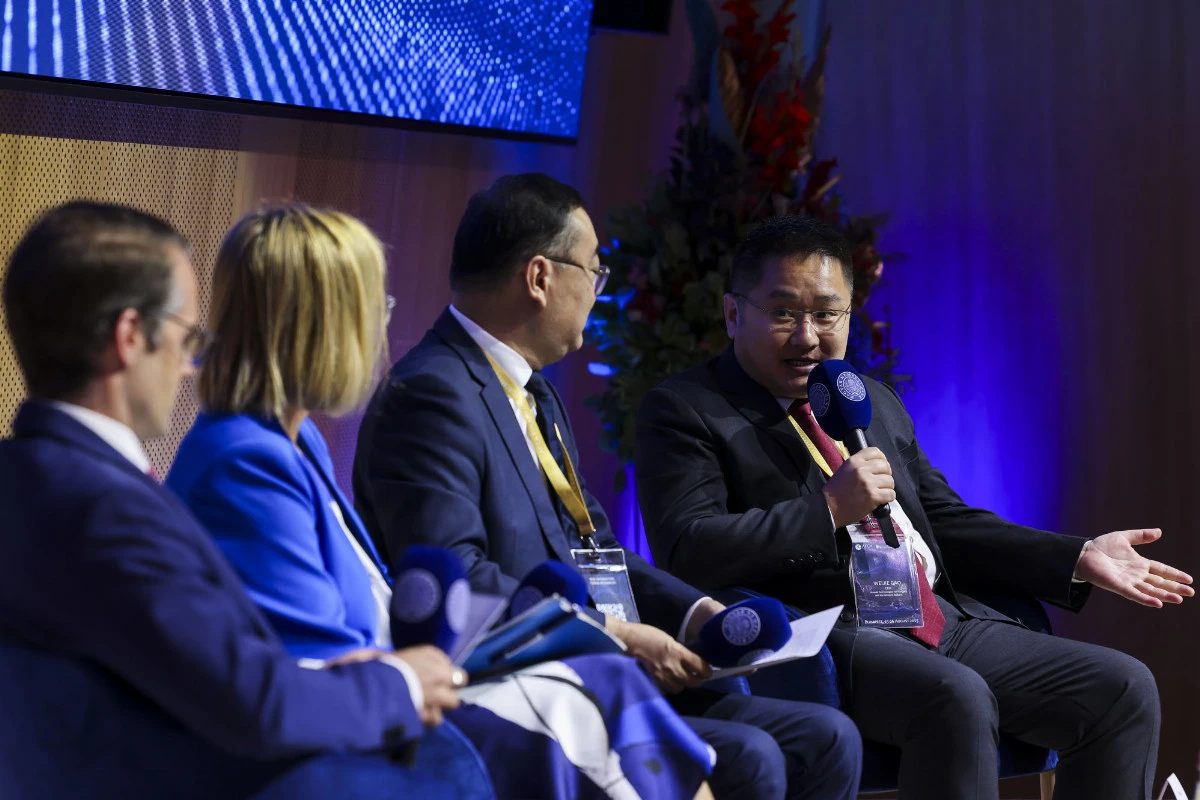
Budapest hosted the AFCA Financial Summit Forum 2025, where industry leaders and policymakers discussed Hungary’s growing appeal for Asian investors and its ambitions to become a European hub for green energy and technology. The panel, moderated by Levente Horváth, Director of the Eurasia Center, featured Weijie Gao, CEO of Huawei Technologies for Hungary and the Western Balkans; Martina Almási, Partner Relations Manager at Hungarian Investment Promotion Agency (HIPA); and Feng Shen, Managing Director of CATL Debrecen.
According to Almási, Hungary’s success story began over 30 years ago with Japanese automotive investment. In recent years, Korean and Chinese companies have taken the lead, bringing greenfield investments and establishing new sectors—particularly in battery manufacturing. ‘Hungary offers political openness, favourable business conditions, advanced infrastructure, and a strong industrial talent pool,’ she said, adding that HIPA supports investors from initial decisions through long-term operations. Integrating Hungarian SMEs into supply chains remains a priority to strengthen local value creation.
Huawei, which celebrates its 20th anniversary in Hungary this year, also praised the country’s stability and cost-effectiveness. ‘Our strategic partnership with Hungary dates back to 2013,’ noted Gao, emphasising Hungary’s role in Europe’s digital and energy transformation.

Gao highlighted the rapid adoption of AI-driven solutions in energy markets, such as electricity trading and Virtual Power Plants. ‘AI enables faster and more accurate forecasting, improving profitability and system stability,’ he explained. While Huawei does not produce vehicles, the company provides batteries, intelligent software, and digital systems for global automakers.
CATL, the world’s largest EV battery producer, operates its biggest plant outside China in Debrecen. Shen stressed Hungary’s regulatory stability and commitment to energy transition as key factors behind their decision. ‘Hungary anchors our global strategy. EU carbon-neutrality targets guarantee long-term demand for energy storage solutions,’ he said. CATL plans to expand green financing tools, including bonds and sustainable finance instruments.
Almási identified high upfront costs as a barrier for SMEs adopting renewable technologies. She proposed innovative financing schemes—such as leasing, pay-as-you-save models, and partial guarantees—to accelerate Hungary’s green shift.
When asked about geopolitical risks, both Gao and Shen called for open competition and predictable EU regulations. ‘Political interference could distort markets and hinder innovation,’ Gao warned, while Shen urged stakeholders to avoid restrictive trade measures that disrupt supply chains.
Closing the session, panelists agreed that Asian foreign direct investment will remain a cornerstone of Hungary’s industrial future, particularly in the automotive and energy sectors. Almási affirmed that Hungary’s goal is to remain a bridge between East and West, building on its traditional ties with Western Europe and the United States while deepening cooperation with Asian partners. Gao stressed the need for financial models that lower barriers for SMEs, Shen called for predictable regulation and fair treatment for investors, and Almási urged the development of green financial products and stronger integration of Hungarian suppliers into global value chains.